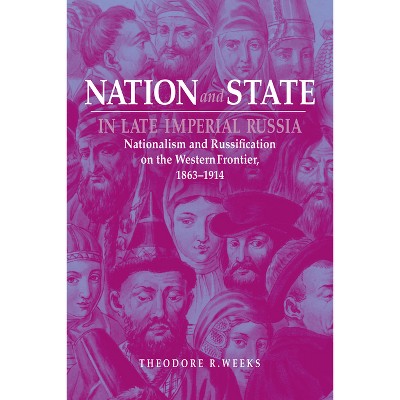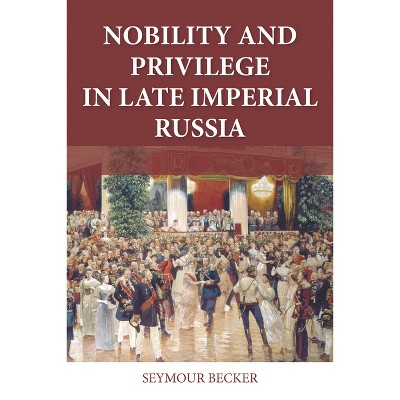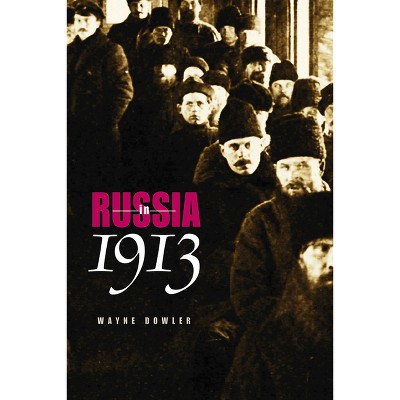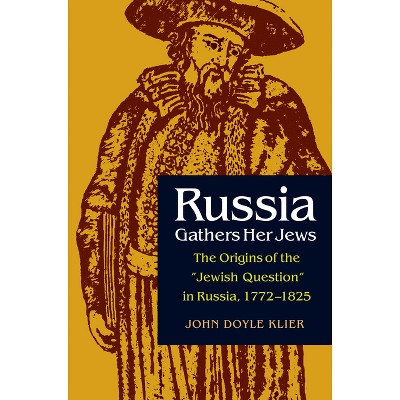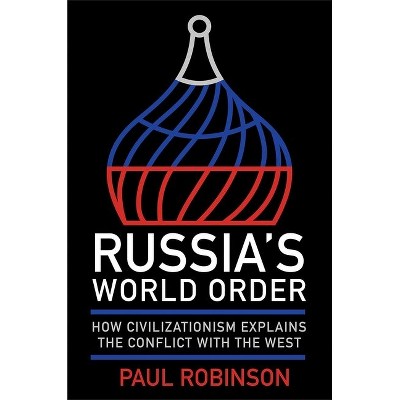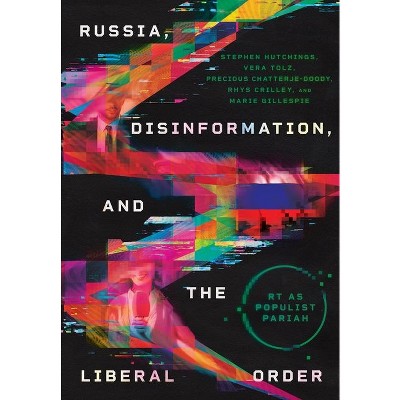Social Identity in Imperial Russia - (Niu Slavic, East European, and Eurasian Studies) by Elise Kimerling Wirtschafter (Paperback)

About this item
Highlights
- A broad, panoramic view of Russian imperial society from the era of Peter the Great to the revolution of 1917, Wirtschafter's study sets forth a challenging interpretation of one of the world's most powerful and enduring monarchies.
- About the Author: Elise Kimerling Wirtschafter is Professor of History at California State Polytechnic University in Pomona.
- 271 Pages
- History, Russia & the Former Soviet Union
- Series Name: Niu Slavic, East European, and Eurasian Studies
Description
About the Book
How did enlightened Russians of the eighteenth century understand society? And how did they reconcile their professed ideals of equality and justice with the authoritarian political structures in which they lived? Historian Elise Wirtschafter turns to literary plays to reconstruct the social thinking of the past and to discover how...Book Synopsis
A broad, panoramic view of Russian imperial society from the era of Peter the Great to the revolution of 1917, Wirtschafter's study sets forth a challenging interpretation of one of the world's most powerful and enduring monarchies. A sophisticated synthesis that combines extensive reading of recent scholarship with archival research, it focuses on the interplay of Russia's key social groups with one another and the state. The result is a highly original history of Russian society that illuminates the relationships between state building, large-scale social structures, and everyday life.
Beginning with an overview of imperial Russia's legal and institutional structures, Wirschafter analyzes the "ruling" classes, and service elites (the land-owning nobility, the civil and military servicemen, the clergy) and then examines the middle groups (the raznochintsy, the commercial-industrial elites, the professionals, the intelligentsia) before turning to the peasants, townspeople, and factory workers. Wirtschafter argues that those very social, political, and legal relationships that have long been viewed as sources of conflict and crisis in fact helped to promote integration and foster the stability that ensured imperial Russia's survival.
Review Quotes
An important, stimulating, and useful contribution to our understanding of Russian society.
-- "Canadian Slavonic Papers"An invaluable source of detailed information and compelling interpretations about social identities in imperial Russia.
-- "Irish Slavonic Studies"Wirtschafter has written a book that every historian of imperial Russia will need to read.... She offers a challenging countermodel to traditional interpretations of Russian social history.
-- "Times Literary Supplement"About the Author
Elise Kimerling Wirtschafter is Professor of History at California State Polytechnic University in Pomona. The recipient of a Guggenheim fellowship in 1998, she is the author of numerous articles and several books, including most recently The Play of Ideas in Russian Enlightenment Theater.






